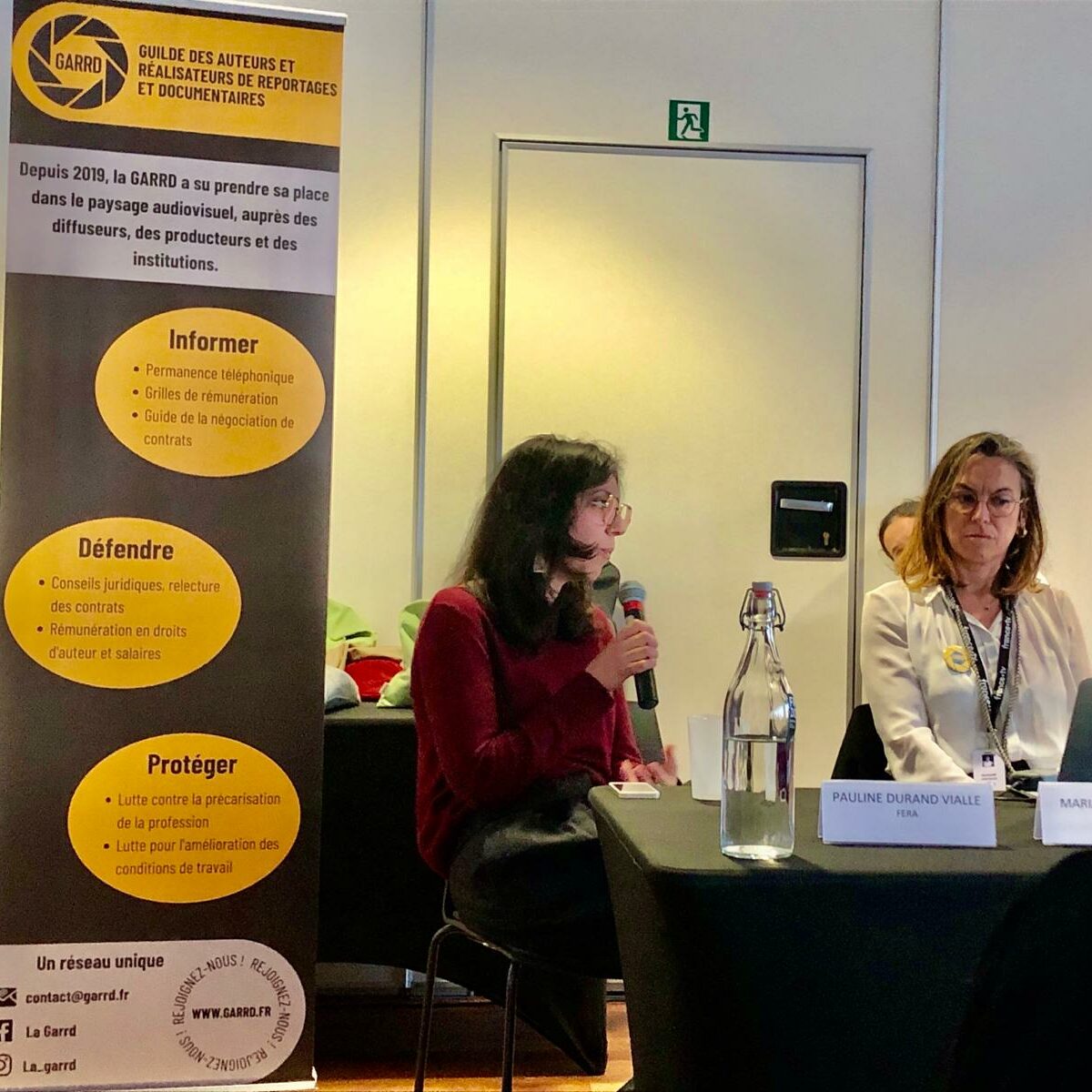
FERA joins FIPADOC Industry Days to talk European Screen Directors’ remuneration and European audiovisual policy

FERA participated in FIPADOC, the first major international documentary festival of the year bringing together the European documentary community in Biarritz, France for the Industry Days, which took place from 22 to 25 January 2024. FERA CEO Pauline Durand-Vialle contributed to two panel discussions on European Screen Directors’ remuneration, and on European policies affecting the audiovisual sector.
On January 23, FERA member La GARRD organised the roundtable “Working conditions for filmmakers around the world: how can we get things moving?”, which gathered various perspectives from director & La GARRD vice president Anne Richard, director & La GARRD president Marianne Kerfriden, Les films d’ici producer Charlotte Uzu, FERA CEO Pauline Durand-Vialle, Current Time TV broadcaster Natalya Arshavskaya, German director & AGDok president David Bernet, and screenwriter & US WGA member Céline Robinson.
The discussion started with an overview of recent developments: in 2023, the Year of Documentary in France ended with an unprecedented social movement in the audiovisual world in France, and the recent publication of data which shows that French writer-directors have lost 30% of their purchasing power over the last 20 years. 2023 also witnessed a historic double strike by the screenwriters’ and actors’ guilds in the US.
Speakers then shared information of the evolution of the precarious socio-economic reality of audiovisual authors and documentary filmmakers, and discussed how to raise awareness on the issue and find concrete solutions to develop sustainable conditions for audiovisual creation in the future. FERA’s CEO insisted on the key role of data collection on employment and income to make the case for change, on the need to organise for the directing community in Europe despite different social and authors’ rights traditions, and on the importance to share best practices and common tools to initiate productive collective negotiations with producers, broadcasters, and streamers in a constructive social dialogue process.
FERA’s CEO then took part in the panel discussion “Geo-blocking, an opportunity?” on January 25, with SPI deputy executive director Emmanuelle Mauger, Eurocinéma executive director Juliette Prissard and ARTE Deputy Director of Production and Acquisitions Florence Sala. The panel was part of The Documentary Panoramas’ third session, a 3-day forum organised by Fipadoc Pro, FERA associate member La Scam and Procirep.
The panel reported on the latest developments on the EU Geo-blocking regulation as its implementation was recently assessed by the European Parliament, triggering intense discussions between audiovisual sector stakeholders and European policymakers, as well as a strong international mobilisation across the audiovisual chain to ensure the continued possibility to license audiovisual works on an exclusive and territorial basis. It also discussed the potential harmful impact of a ban on audiovisual works’ geo-blocking, meaning that territorial exclusivity of licenses could no longer be enforced, and the crucial importance of the upcoming European elections next June in shaping a new European Parliament as the next few years will see the revision of key European legislations – including the Geo-blocking regulation.
FERA’s CEO stressed that the audiovisual creative community stood in solidarity with the rest of the sector’s value chain in supporting geo-blocking as a tool to enforce exclusive territorial licensing: while authors’ rights and copyright have a European harmonised framework, they are also singularly diverse with each country having its own authors’ rights legislation and tradition – yet they remain the common grammar of licensing worldwide.
While they can share some of the frustration on difficulties for their works to reach wide audiences, audiovisual authors are always keenly aware of the essential importance of territorial exclusivity as a pre-condition to a diversity of stories to be told, produced, actively brought to audiences, and promoted. It therefore is a prerequisite for artistic freedom and cultural diversity across Europe: co-production for instance plays a key role in that regard – without it, film auteurs from European countries with a smaller production capacity would not have a voice.

